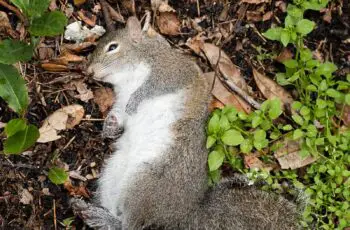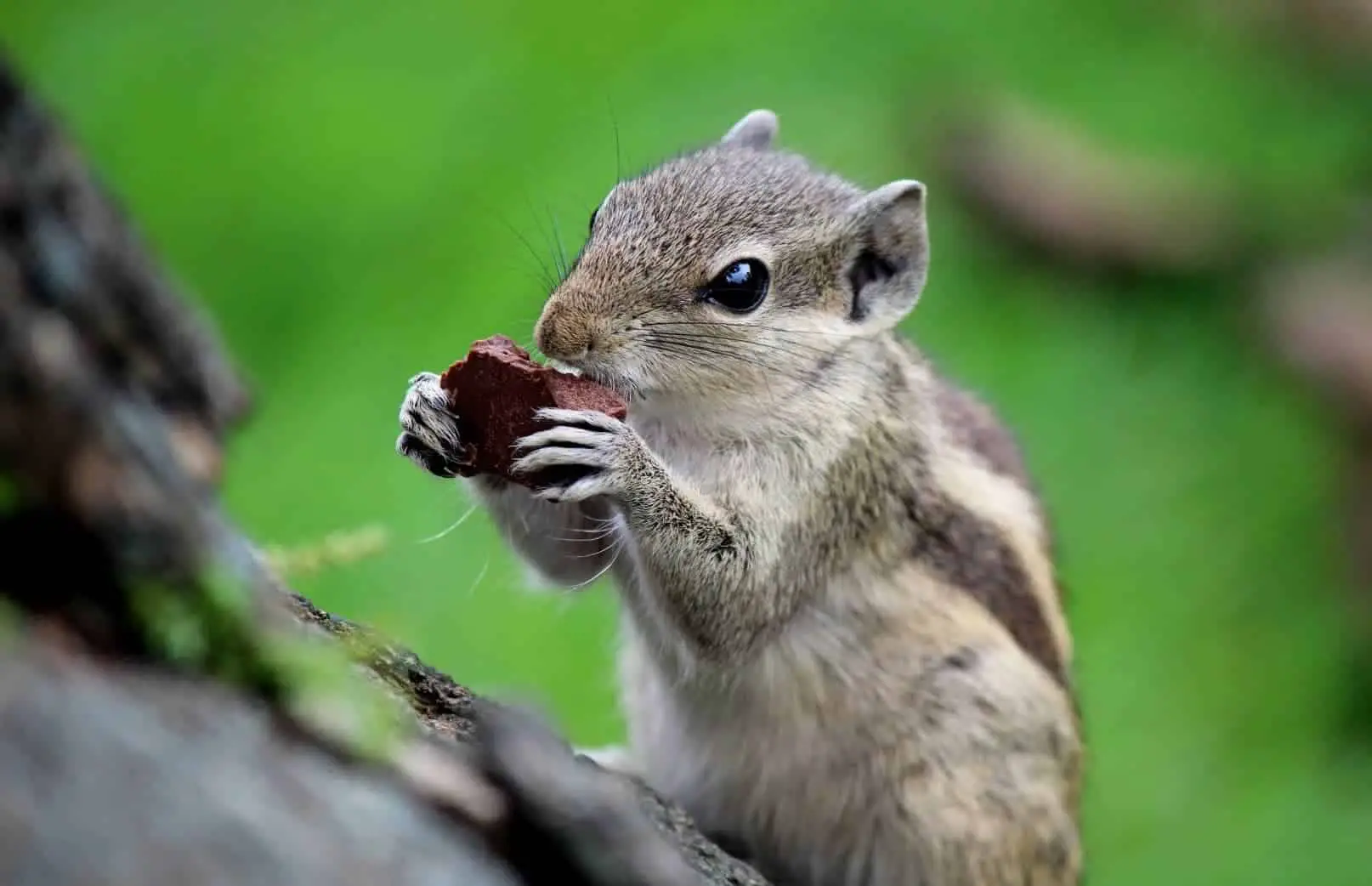Believe it or not, birds experience hormonal changes as they mature. While the process may be a little different than in humans, the bird’s body is going through some major changes as it prepares to start reproducing. However, do birds go through puberty?
Yes, birds go through puberty for intense physiological changes that prepare them for reproduction. During puberty, birds experience an uptick in hormones that stimulate the growth of their reproductive organs and secondary sexual characteristics. On average birds go through puberty at 2 months old.
While each bird species goes through puberty differently, it’s clear that this is a crucial time in their development.
Do Birds Get Puberty?
The process of sexual maturation in birds is called puberty. Although people often think of puberty as something that only happens to mammals, birds also go through this stage of development.
Puberty is a time of big hormonal changes, not just for humans but for birds too. During puberty, birds experience hormonal changes that affect their appearance and behavior. For example, they may develop brighter plumage, sing more often, or become more aggressive towards other birds. This change in behavior is often necessary for birds to find a mate and reproduce.
While the details of puberty is different from species to species, it is clear that birds do undergo this important phase of development.
How Long Does Puberty Last?
Bird puberty goes surprisingly long, taking around 3 months on average but can last up to one year. The age at which a bird matures sexually depends on the species, with smaller birds generally reaching maturity sooner than larger ones.
Once puberty is reached, a bird’s hormones will fluctuate in response to changing conditions, such as the availability of mates or the approach of winter. Although most people think of birds as being monogamous creatures, many species actually mate for life.
However, if one member of a pair dies, the other will often find another mate. Studies have shown that birds form strong emotional bonds with their mates and often grieve when they are separated.
The breeding season also plays a role in bird mating behavior, with many species only coming together during this time in order to produce offspring. Birds are fascinating creatures, and their sexuality is just one of the many intriguing aspects of their lives.
At What Age Do Birds Go Through Puberty?
For birds, this process occurs relatively quickly, with most species reaching sexual maturity around 1.5 months old. However, depending on different types of birds, with some species taking longer to reach puberty and others maturing even more quickly. Age is not the only factor that determines when a bird reaches puberty; diet and health also play a role. In general, however, birds typically go through puberty at around 1.5 months old on average.
Do Female Birds Go Through Period?
No, they don’t. Birds don’t have uteruses or, for that matter, any other reproductive organs that are similar to those of mammals. Instead, they have a cloaca, which is a single opening that is used for both excretion and reproduction.
However, this doesn’t mean that female birds don’t experience any hormonal changes throughout the year. In fact, most birds will experience a period of heightened hormones once or twice a year, usually when it’s time to breed. During this time, birds may become more aggressive and territorial as they compete for mates.
However, once the breeding season is over, their hormone levels will return to normal and they will go back to their usual behavior. So, while female birds don’t go through periods in the traditional sense, they do experience hormonal changes that can affect their behavior.
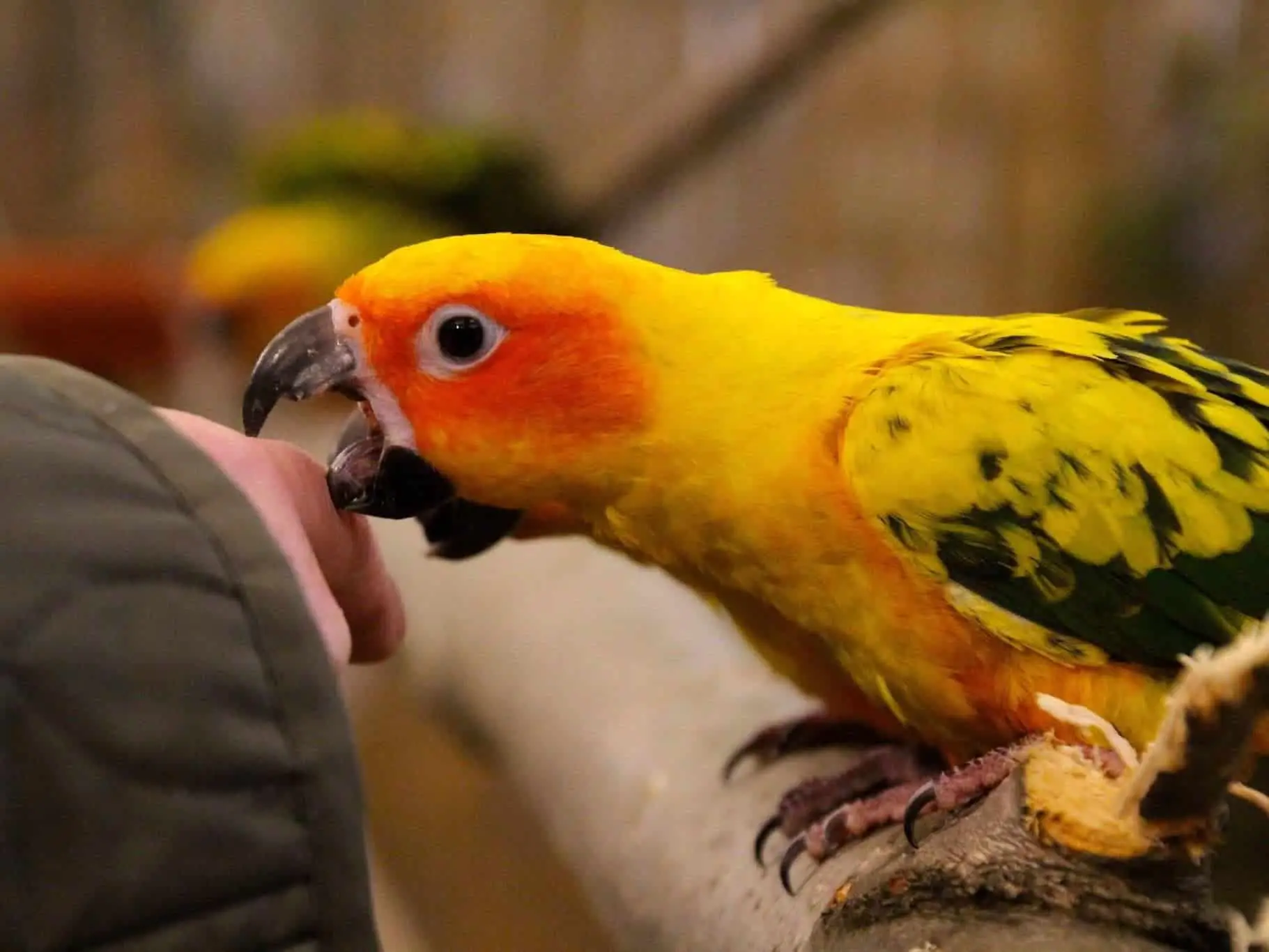
What Are The Signs of Bird Going Through Puberty?
There are a few signs that may indicate that your bird is reaching puberty.
For example, you may notice that your bird is starting to sing more often or more loudly.
You may notice a change in behavior, such as increased preening or aggression. Mostly like the bird may bite when you stretch and asks for stretching and then pecks. Sometimes, it may love you and bite others assuming you’re his mate.
Lastly, bird may become more active and engages in more activity especially when he sees you. Like when you come, the bird starts to flap his wings fiercely and walk and run and bite.
If you observe any of these changes, it is important to consult with your veterinarian to ensure that your bird is healthy and to discuss any potential changes in care that may be necessary.
What To Do If A Bird Goes Through Puberty?
It’s a fact of life: All birds go through puberty. While the process is natural, it can be difficult for bird owners to know how to best care for their feathered friends during this time. And when they go through this process, birds may become aggressive which might be difficult to handle. Most people become aggressive in response and it really hurts both sides.
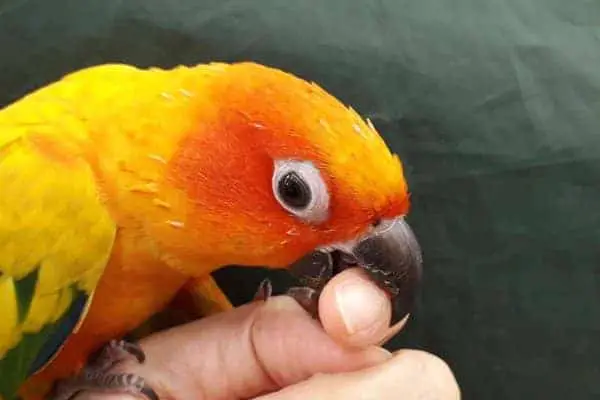
Approach Gently
The first and most important thing to remember is to avoid approaching your bird directly. Puberty is a time of intense hormones and emotions, and birds can be highly territorial during this period.
If you must interact with your bird, do so calmly and slowly, giving him or her time to adjust to your presence. And in no condition, do not approach the bird with anger or yell on it.
Meanwhile, when appraoching, use gloves and do not let it sit on your shoulder if the bird is bitting.
It’s also important to provide plenty of opportunities for your bird to socialize with others during this time.
Do Not Scare & Behave Gently
If a bird goes through puberty, the best thing to do is not scare it and behave gently. Sometimes, birds can get scared easily during this time and might even attack people. If a bird is acting strange, it is best to stay away from it and give it some space. If you have to go near the bird, make sure to move slowly and avoid making any sudden movements.
Strictly, avoid throwing something at it, yelling, or anything that makes it angry.
During puberty, birds also become more territorial and might start attacking other birds or animals. If you see a bird behaving aggressively, try to distract it with food or water.
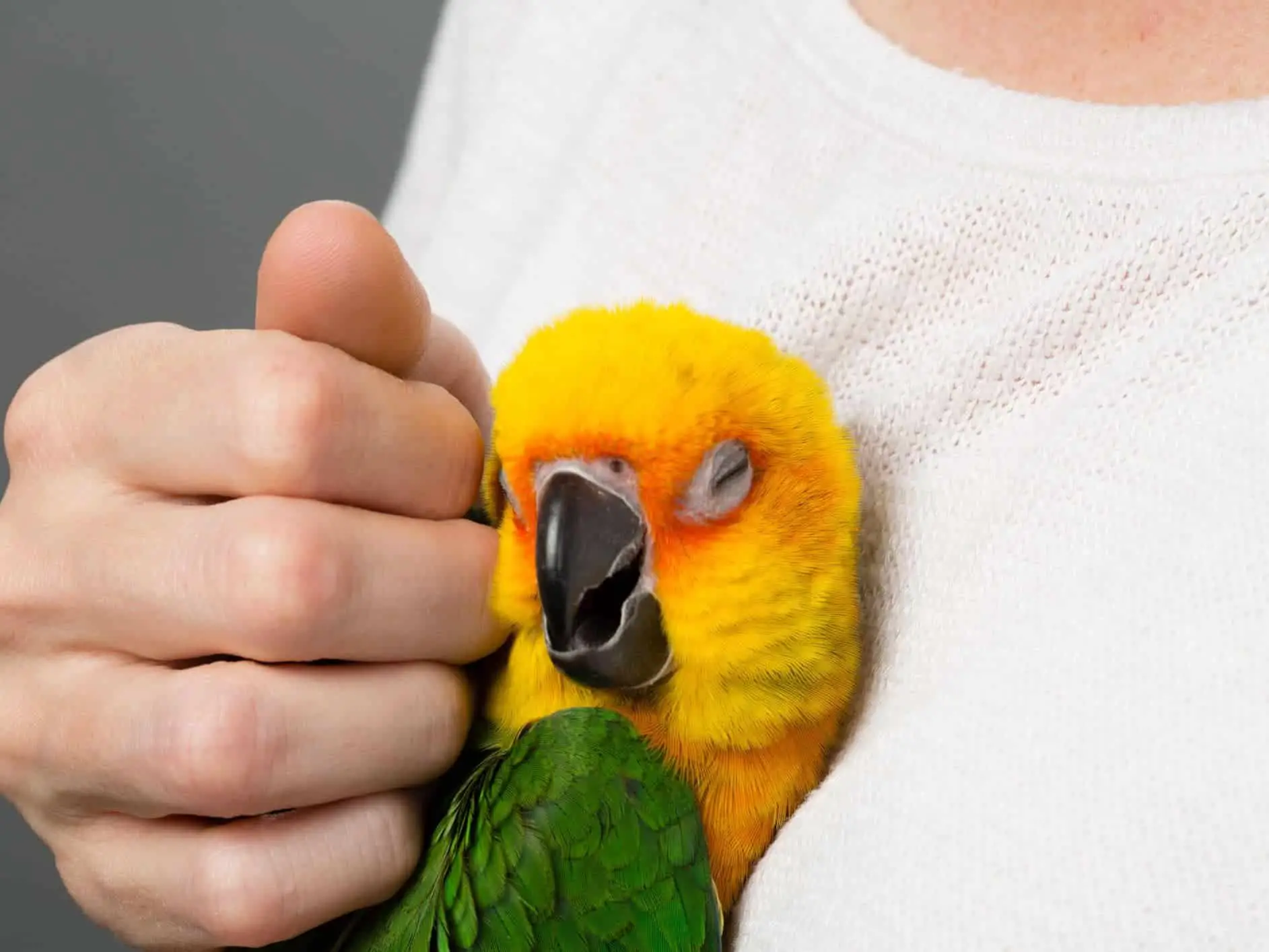
Bird Stretching by owner
Provide Lots of Toys and Activities
If your bird is going through puberty, you may notice some changes in their behavior. They may become more vocal, start chewing on things more, or even seem a bit grumpy. But don’t worry, these changes are perfectly normal!
The best way to help your bird during this time is to provide them with lots of toys and activities. This will help them stay occupied and distracted from any negative feelings they may be experiencing. Make sure to keep an eye on your bird during this time, as they may start acting out in ways that they never have before. If you see any concerning behaviors, please consult your veterinarian.
What Other Physiological Do Birds Go Through In Their Life?
Other than puberty, birds may experience physiological changes during breeding. Although bird may undergo the some hormonal pressure, but it won’t be as intense as puberty and doesn’t last long.
Birds spend a good portion of their time and energy during the breeding season searching for a mate. Once they find a suitable partner, they go through an elaborate courtship ritual that often includes singing, dancing, and gift-giving.
After bonding, birds build a nest together and share the responsibility of incubating the eggs and raising the chicks. Some species of birds mate for life, while others only stay together until the breeding season is over.
During the breeding season, birds also undergo physical changes that help them to attract mates and care for their young. For example, many species of birds grow brilliant plumage during this time.
The males often grow larger than females and develop larger weapons. These physical changes help males to compete for mates and protect their young from predators. After the breeding season is over, most birds shed their colourful plumage and return to their normal size.

